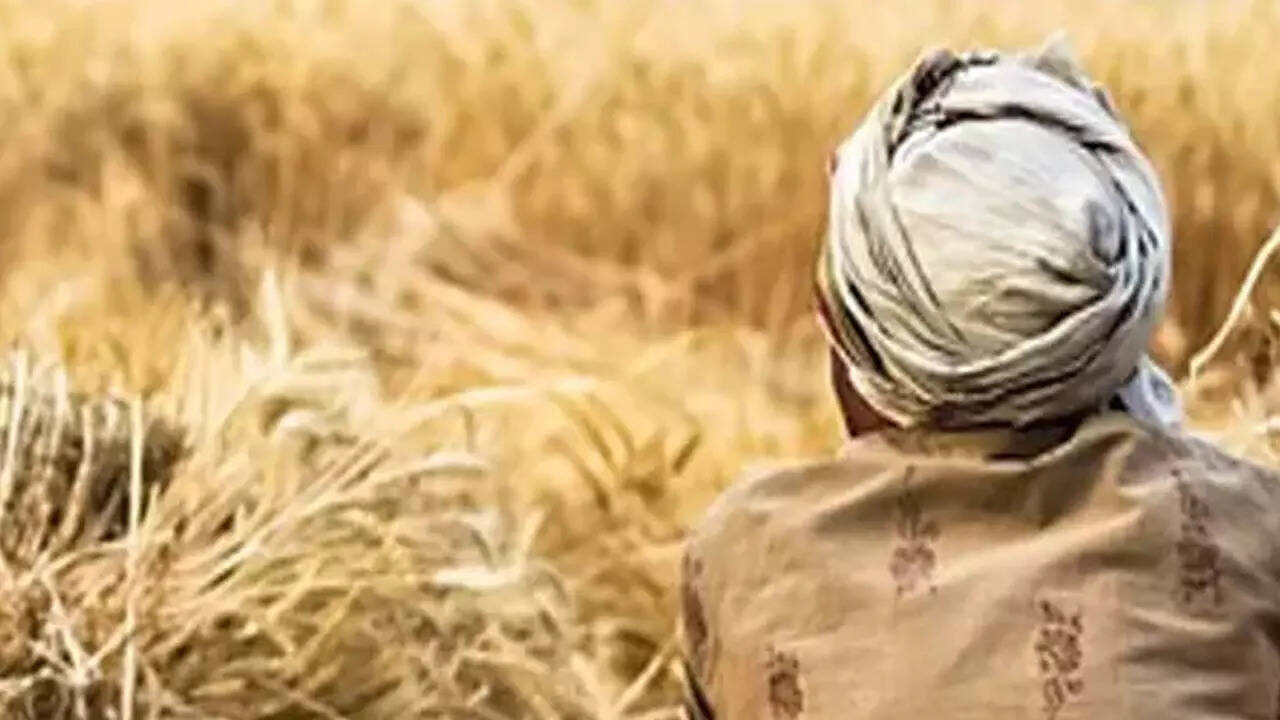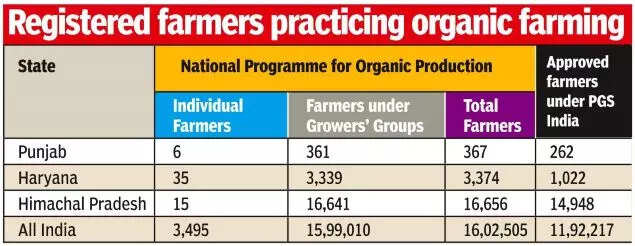
CHANDIGARH: Among all the states in the country, Punjab has the lowest number of 262 farmers practising organic farming under Participatory Guarantee System (PGS India) and just 367 have registered for the National Programme for Organic Production(NPOP) in TraceNet under third party certification. This data was shared by Union agriculture minister Narendra Singh Tomar in the ongoing Parliament session.
A total of 11.92 lakh farmers in the country are practicing organic farming under PGS India and 16.02 lakh have registered in TraceNet under third party certification of the NPOP. Uttarakhand has the highest number of over 3.01 lakh farmers practicing organic farming under the PGS India scheme, followed by over 1.70 lakh in Rajasthan and over 1.63 lakh in Uttar Pradesh. A budget of Rs 650 crore is allocated for the 2021-22 financial year to promote organic or bio-input based organic farming in the country.

Tomar informed the Lok Sabha that the central government is implementing dedicated schemes of Paramparagat Krishi VikasYojana (PKVY) and Mission Organic Value Chain Development in North East Region (MOVCDNER) to promote and popularise chemical input free farming among farmers. Under these schemes, assistance is provided for cluster formation, training farmers, organic input procurement, on-farm preparation, post-harvest management including marketing.
He said farmers are provided a subsidy of Rs 31,000 per hectare for three years under the PKVY and Rs 32,500 per hectare for three years under MOVCDNER for various organic inputs including organic manure.
The Centre is also implementing Bharatiya Prakritik Krishi Padhati (BPKP) as a sub-scheme of PKVY from 2020-21 for the promotion of traditional or natural indigenous practices by using agricultural waste and animal dung. This scheme mainly emphasises on exclusion of synthetic chemical inputs and promotes on-farm biomass recycling with major stress on biomass mulching, use of cow dung-urine formulations and other plant-based preparations.
Under the BPKP, financial assistance of Rs 12,200 per hectare for three years is provided for cluster formation, capacity building and continuous handholding by trained personnel, certification and residue analysis. An area of 4.09 lakh hectares has been covered in eight states, including Himachal Pradesh, under the BPKP.







